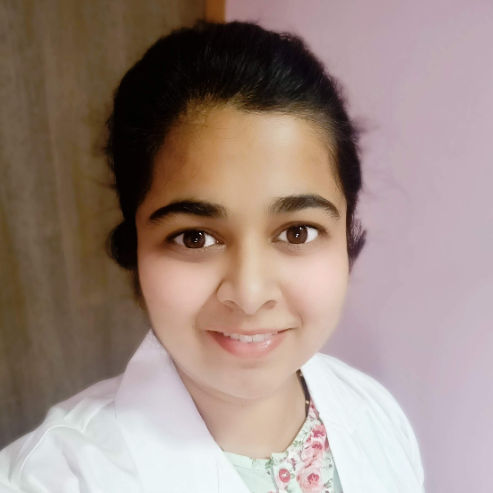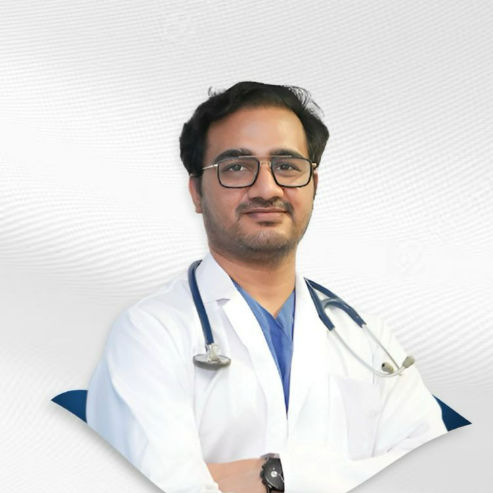Heart Attack Overview and Management
Get a comprehensive overview of heart attacks, including causes, warning signs, and treatment options. Learn how early intervention and lifestyle changes can help manage and prevent heart attacks.

Written by Dr. J T Hema Pratima
Reviewed by Dr. Rohinipriyanka Pondugula MBBS
Last updated on 22nd Aug, 2025

A heart attack, also known as a myocardial infarction, is a serious medical emergency that occurs when blood flow to a part of the heart is blocked, usually by a blood clot. Without enough oxygen-rich blood, the heart muscle begins to suffer damage, which can be life-threatening if not treated quickly.
Understanding the causes, symptoms, and ways to manage a heart attack can help you take the right steps to protect your heart health.
What Happens During a Heart Attack?
The heart needs a constant supply of oxygen-rich blood to function properly. When one of the coronary arteries (blood vessels that supply the heart) gets blocked, the part of the heart muscle fed by that artery starts to die. The longer the blockage remains untreated, the more severe the damage.
Consult a Top Cardiologist
Common Symptoms of a Heart Attack
Heart attack symptoms can vary from person to person. Some people experience sudden, intense pain, while others may have mild symptoms that develop slowly. Common signs include:
Chest pain or discomfort – A feeling of pressure, tightness, heaviness, or squeezing in the center or left side of the chest.
Pain spreading to other areas – Discomfort may radiate to the arms (especially the left arm), jaw, neck, back, or stomach.
Shortness of breath – Difficulty breathing, even when resting.
Cold sweat, nausea, or dizziness – Feeling clammy, lightheaded, or sick to the stomach.
Fatigue – Unusual tiredness, sometimes days before the attack.
Note: Women, older adults, and people with diabetes may experience less typical symptoms, such as indigestion-like pain, extreme fatigue, or fainting.
What Causes a Heart Attack?
The most common cause is coronary artery disease (CAD), where fatty deposits (plaque) build up inside the arteries, narrowing them. If a plaque ruptures, a blood clot can form, blocking blood flow. Other causes include:
Spasm of a coronary artery (sudden tightening)
Blood clots from other parts of the body
Severe stress or physical exertion (rare but possible)
Risk Factors
Certain factors increase the likelihood of a heart attack:
Uncontrollable Risks:
Age (men over 45, women over 55)
Family history of heart disease
Previous heart attack or stroke
Controllable Risks:
Smoking
High blood pressure
High cholesterol
Diabetes
Obesity
Lack of exercise
Excessive alcohol
Chronic stress
How Is a Heart Attack Diagnosed?
If you suspect a heart attack, seek emergency help immediately. Doctors may perform:
Electrocardiogram (ECG/EKG) – Detects abnormal heart rhythms.
Blood tests – Check for enzymes released during heart muscle damage.
Angiography – A special X-ray to see blocked arteries.
Echocardiogram – Ultrasound of the heart to check damage.
Treatment and Management
Below are the ways of managing a heart attack,
Emergency Treatment
Medications:
Aspirin – Prevents further clotting.
Thrombolytics – Clot-busting drugs (if given early).
Pain relievers & Nitroglycerin – Reduce chest pain.
Procedures:
Angioplasty & Stent placement – Opens blocked arteries.
Coronary artery bypass surgery (CABG) – Redirects blood flow around blockages.
Long-Term Management
After a heart attack, lifestyle changes and medications help prevent another attack:
1. Medications:
Blood thinners (e.g., aspirin, clopidogrel)
Beta-blockers & ACE inhibitors – Lower blood pressure and heart strain.
Statins – Control cholesterol.
2. Lifestyle Changes:
Quit smoking – Smoking damages blood vessels.
Eat a heart-healthy diet – Focus on fruits, vegetables, whole grains, lean proteins, and healthy fats (like olive oil, nuts). Avoid excess salt, sugar, and fried foods.
Exercise regularly – Aim for 30 minutes of moderate activity (walking, swimming) most days.
Manage stress – Practice relaxation techniques (deep breathing, yoga, meditation).
Control weight & chronic conditions – Keep diabetes, blood pressure, and cholesterol in check.
3. Cardiac Rehabilitation:
A supervised program including exercise, education, and counseling to improve heart health.
When to Seek Help?
If you or someone else experiences:
Severe chest pain lasting more than a few minutes
Pain spreading to the arm, jaw, or back
Shortness of breath with sweating or nausea
Call emergency services immediately (Dial 108 or your local emergency number). Do not delay!
Prevention Tips
Get regular check-ups – Monitor blood pressure, cholesterol, and blood sugar.
Know your family history – Discuss risks with your doctor.
Stay active – Even small steps like walking daily help.
Avoid excessive alcohol & processed foods – Moderation is key.
Need Expert Advice?
If you have concerns about heart health, consult a cardiologist. Apollo 24|7 offers easy online consultations and diagnostic tests to help you stay on top of your heart health.
Conclusion
A heart attack is a medical emergency that requires prompt attention to prevent serious complications and save lives. Understanding the risk factors, recognizing the warning signs, and seeking immediate medical care are crucial steps in effective management. With the right combination of medical treatment, lifestyle changes, and ongoing monitoring, individuals can significantly reduce their risk of future heart attacks and improve overall heart health.
Consult a Top Cardiologist
Consult a Top Cardiologist

Dr. Tripti Deb
Cardiologist
40 Years • MBBS, MD, DM, FACC, FESC
Hyderabad
Apollo Hospitals Jubilee Hills, Hyderabad
Dr Moytree Baruah
Cardiologist
10 Years • MBBS, PGDCC
Guwahati
Apollo Clinic Guwahati, Assam, Guwahati

Dr. Zulkarnain
General Physician
2 Years • MBBS, PGDM, FFM
Bengaluru
PRESTIGE SHANTHINIKETAN - SOCIETY CLINIC, Bengaluru

Dr Nazneen Khan
Cardiologist
7 Years • M.B.B.S, M.D (MEDICINE), DrNB CARDIOLOGY
Pune
Apollo Clinic, Viman Nagar, Pune

Dr. Janjirala Seshivardhan
Cardiologist
7 Years • MBBS,DNB(GM),DM(Cardiology)
Manikonda Jagir
Apollo Clinic, Manikonda, Manikonda Jagir




